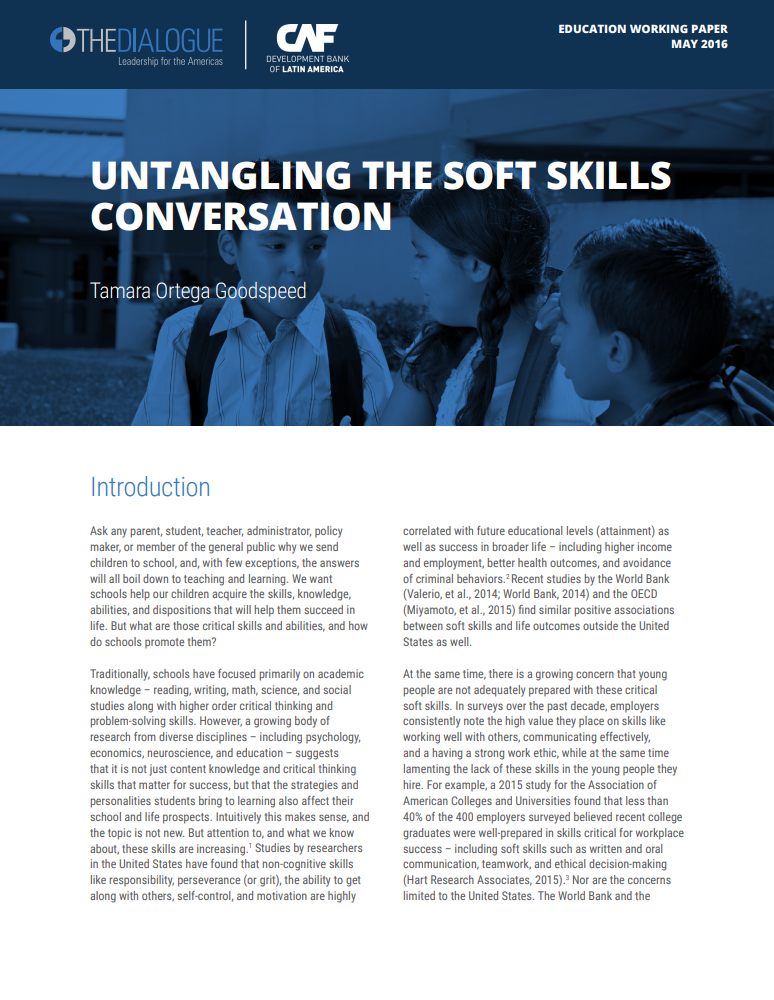Protecting Latin America’s Poor During Economic Crises
History tells us that economic crises cause large increases in poverty. The most recent economic crisis will cause Latin America’s GDP to contract around 2 percent in 2009.
This post is also available in: Español
Soft skills, along with cognitive skills, are important predictors of school and life success, and building these skills can help lead to better academic performance, employment and wage opportunities, and healthy behaviors. Moreover, we know that businesses both inside and outside Latin America complain that they cannot find workers with the skills they need, and that American industry currently spends around US $50 billion every year on training, and much of this training focuses on social and emotional skills. Likewise, surveys of Latin American firms show that while employers report that they highly value non-cognitive skills, these skills are the most difficult to find in young workers.
Fortunately, early research and experience suggests that we can teach soft skills at key moments from early childhood to young adulthood when the brain is most receptive to this type of thinking and learning. Soft skills interventions also have the potential to help young people from disadvantaged backgrounds overcome some of the obstacles they face, in addition to helping all students more successfully engage in the world around them. Schools and teachers are also increasingly receptive to fostering soft skills in schools. All of this suggests that further investment in helping young children and adolescents develop key soft skills is both warranted and timely.
This report examines soft or socioemotional skills from different perspectives: it offers important definitions, explores various frameworks used to study them, synthesizes the results and limitations of existing research, outlines the characteristics of some successful programs, and discusses potential future paths for improving their implementation in education.
History tells us that economic crises cause large increases in poverty. The most recent economic crisis will cause Latin America’s GDP to contract around 2 percent in 2009.
The goal of education is to promote learning. Sitting in classrooms is a weak proxy for knowing how to read, do math, and apply science. Latin America needs to worry less about schooling and more about learning.
The mobilization of 70,000 students in the streets of Chile is more than just a protest for free higher education.
